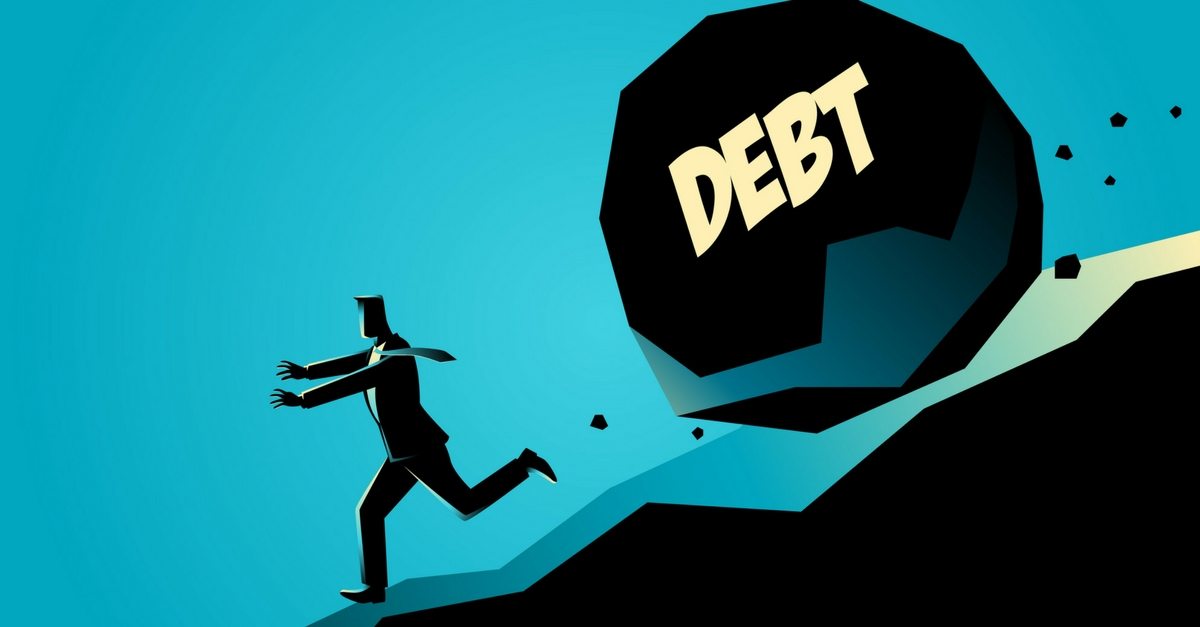Billionaire Warns of Debt Crisis, Recommends Bitcoin and Gold as Safe Havens
11.12.2024 12:00 2 min. read Kosta Gushterov
Ray Dalio, the billionaire founder of Bridgewater Associates, recently raised concerns about a looming global debt crisis, highlighting the unsustainable debt levels in major economies such as the U.S. and China.
In light of this, Dalio advised investors to shift focus away from debt-related assets like bonds and instead invest in “hard money” assets such as Bitcoin and gold.
Speaking at a financial conference in Abu Dhabi, Dalio expressed his belief that the current debt situation would eventually lead to a decline in the value of money. He emphasized the importance of considering larger economic forces rather than getting caught up in short-term headlines. “I want to steer away from debt assets like bonds and debt,” Dalio said, urging a move towards hard assets to hedge against potential financial instability.
While Dalio had been a skeptic of Bitcoin in the past, he has since become a proponent, advocating for a small allocation of Bitcoin in investment portfolios. In 2022, he suggested that Bitcoin could make up to 2% of an investment strategy, alongside gold, as a safeguard against inflation.
Dalio’s stance comes at a time when many are speculating about the creation of a U.S. Bitcoin reserve under the incoming administration of President-elect Donald Trump. Despite this, some, like gold advocate Peter Schiff, have criticized the idea, urging the current administration to sell off the U.S.’s Bitcoin holdings to reduce the national deficit and avoid potential negative consequences of a national Bitcoin reserve.
-
1
UniCredit to Launch Structured Product Tied to BlackRock’s Spot Bitcoin ETF
01.07.2025 17:53 1 min. read -
2
Trump’s Two big Bitcoin Moves: Key Catalysts or Just Noise for BTC Price?
08.07.2025 7:30 2 min. read -
3
Bitcoin Market Stalls as Profit-Taking, Whale Dispersal, and Sideways Action Define the Cycle
01.07.2025 20:00 3 min. read -
4
Speculation Surges as Binance BTC Futures Volume Tops $650 Trillion
04.07.2025 17:37 2 min. read -
5
Which Is the Next Bitcoin Price Target?
06.07.2025 20:00 2 min. read
Public Companies Now hold Over $100 Billion in Bitcoin — 4% of Total Supply
According to new data shared by Bitcoin Magazine Pro, publicly traded companies now collectively hold over 844,822 BTC, valued at more than $100.5 billion, marking a historic milestone for institutional Bitcoin adoption.
Trump Media Holds $2B in Bitcoin as Crypto Plan Expands
Trump Media and Technology Group, the parent company of Truth Social, Truth+, and Truth.Fi, has officially disclosed that it now holds approximately $2 billion in Bitcoin and Bitcoin-related securities.
Strategy Adds 6,220 BTC, Pushing Total Holdings Past 607,000
Michael Saylor’s Strategy has confirmed another major Bitcoin purchase, acquiring 6,220 BTC last week for approximately $739.8 million.
Bitcoin Open Interest Hits $42B as Funding Rates Signal Bullish Overextension
Bitcoin’s derivatives market is heating up, with open interest climbing back to $42 billion while funding rates continue to surge.
-
1
UniCredit to Launch Structured Product Tied to BlackRock’s Spot Bitcoin ETF
01.07.2025 17:53 1 min. read -
2
Trump’s Two big Bitcoin Moves: Key Catalysts or Just Noise for BTC Price?
08.07.2025 7:30 2 min. read -
3
Bitcoin Market Stalls as Profit-Taking, Whale Dispersal, and Sideways Action Define the Cycle
01.07.2025 20:00 3 min. read -
4
Speculation Surges as Binance BTC Futures Volume Tops $650 Trillion
04.07.2025 17:37 2 min. read -
5
Which Is the Next Bitcoin Price Target?
06.07.2025 20:00 2 min. read


